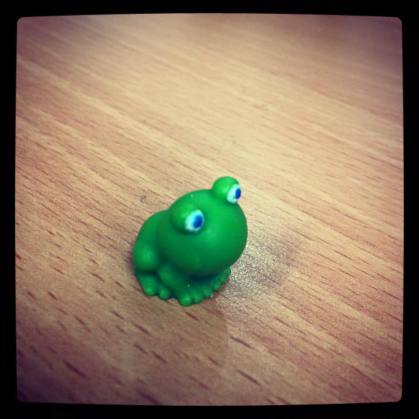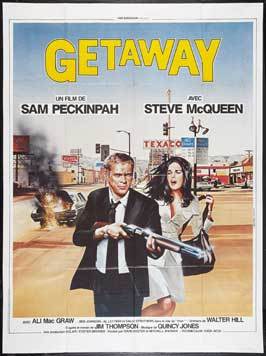
This week, (and last week, and the week before that, and pretty much every week for about two months), I’ve been working on editing my next novel. Editing doesn’t come easily to me. In every aspect of my life I am a, “conceive of an idea, enthuse about the idea and don’t really think about the logistics,” kind of person. I don’t like repetitive experiences; the gym and I, never really hit it off. I don’t like going over old ground; I used to absolutely hate revision when I was a student. Basically, I don’t like doing the same thing again when there are so many things I haven’t had a chance to do yet.
I particularly struggle when it comes to editing my writing. I tend to self-edit as I write. I’m not a rough drafter and always begin my writing day by reworking the material I wrote on the previous day. This means I can often get to the end of a short story and find I’ve already re-worked it a dozen or more times in the process of writing. I think this has fooled me into assuming I don’t actually need to edit my work. Am beginning to understand this is both untrue and rather arrogant. All books require editing and the novel I’m working on at the minute is no exception. I’m struggling but persevering, currently on my fourth complete read-through and hoping to have a slightly-less-rough draft by the end of next week. Here are a few things I’ve learnt about editing in the last month.
You don’t get the same, “having to get over the blank page” hump with editing as you do with writing. Every time I sit down to write something new I have this moment of exhaustion/fear/apathy where I don’t want to be writing and I feel like I don’t have anything fresh to write about. Every time. It usually takes me about half an hour of procrastination and deleting every sentence/starting again, before I actually get into the rhythm of writing and stop being so conscious of myself. Editing is actually a lot less intimidating. The hard work is already done. You just have to keep turning up for the nipping and tucking and tweaking part. It is not scary. It is just boring.
There is no point in editing tired- I can occasionally write tired, tapping into that slightly inebriated, semi-lucid freedom, DBC Pierre talks about in his section on writing exhausted in Release The Bats. You can’t edit tired. You need to be sharp enough to pick up on what’s working and what’s jarring and this takes a clean, uncluttered mind and a lot of concentration. (Probably best to limit yourself to a couple of glasses of wine too).
(Leading on from Point 2), I’ve learnt that I can only edit in short bursts: an hour and a half is ideal, two hours maximum. After this my reading eye gets sloppy and I seem to be less-inclined to make changes. I’ve started noticing that the first section I edit in each session is littered with track changes which literally disappear as the chapter proceeds. I’m pretty sure the first section of everything I write is not consistently more ropey than the second session, so I’m guessing I must be an editor with a short concentration span. I’m finding that two shorter sessions of editing in a day is much better than one four hour, caffeine fuelled super session.
You need to not be yourself when you edit- I keep having to put a distance between myself and my manuscript as I edit. I’ve read it so many times now, I know what’s coming next. I’ve been forcing myself to stop editing as the person who wrote the book and try to assume the persona of a person who wants to read the book. George Saunders, ( may his name be ever praised), talks a lot about the difference between reading your manuscript as a writer, and reading it as a reader. The longer I work on editing without taking a break, the more I find myself slipping into second-guessing what comes next and skipping necessary edits.
Some brilliant advice stolen from Eimear McBride’s session at Cathedral Quarter Arts Festival last week, “cut out the bits you don’t remember.” This has really helped my editing this week. If you can’t remember writing it, it’s unlikely that your readers are going to find it particularly memorable. (nb did not know until last week that EMcB managed to trim The Lesser Bohemians down from 800 pages to a much more slimline 250-ish. I can only conclude from this piece of trivia that it is well-worth listening to any advice she gives on editing).
Be careful what you are reading whilst editing- Some people have suggested very helpful things to read whilst editing this particular novel. They have helped me develop my characters and also given me some new insights into making sure the plot flows, rather than trickles and then suddenly explodes like a badly written page turner. I also tried to read Iris Murdoch whilst editing and felt so utterly inadequate I almost gave up. It’s probably best to read either helpful secondary material, or books which are much shitter than yours whilst editing in order to save yourself from have a crisis of self-doubt.
Know when to stop editing- if you have changed a semicolon to a comma and back to a semicolon more than six times you are not editing you are only picking at a scab. Leave it be.
Am now stealing a fabulous piece of advice from Kevin Barry. I think he said this during the rather bizarre and profanity-laden reading of Beatlebone, which he gave right besides the children’s section in Waterstone’s Belfast last year: “write the book then you will know what you need to research and will not waste time researching pointless, (and probably distracting), things which are not necessary to your story.” Hooray for Kevin Barry, giving us writers another good reason to be lazy. I have used this piece of advice to good effect this month and am only now tying down the specific technical terms I need for the novel. This has saved me a lot of time, (although as it’s mostly about doctors and I spend a lot of time watching medical dramas, I do consider myself something of an expert in the field already).
Do not do your last minute research on Wikipedia, (throwback to 2014 when I misread the Wiki article on the American Civil War and sent a manuscript off with the Confederate and Union teams the wrong way round- quite embarrassing). However, it is completely acceptable to use the hive mind of social media to find out specific pieces of insider knowledge, e.g. “what do you call a doctor’s room in a GP surgery?” or, “where does the Albertbridge Road end?” or, “what age do babies start getting teeth at?”
Do not feel bad that you are not writing anything new if you are in the middle of editing. This would be crazy and very painful like trying to give birth and simultaneously conceive another child.
Advertisements
Share this:
Like this:Like Loading...
Related






